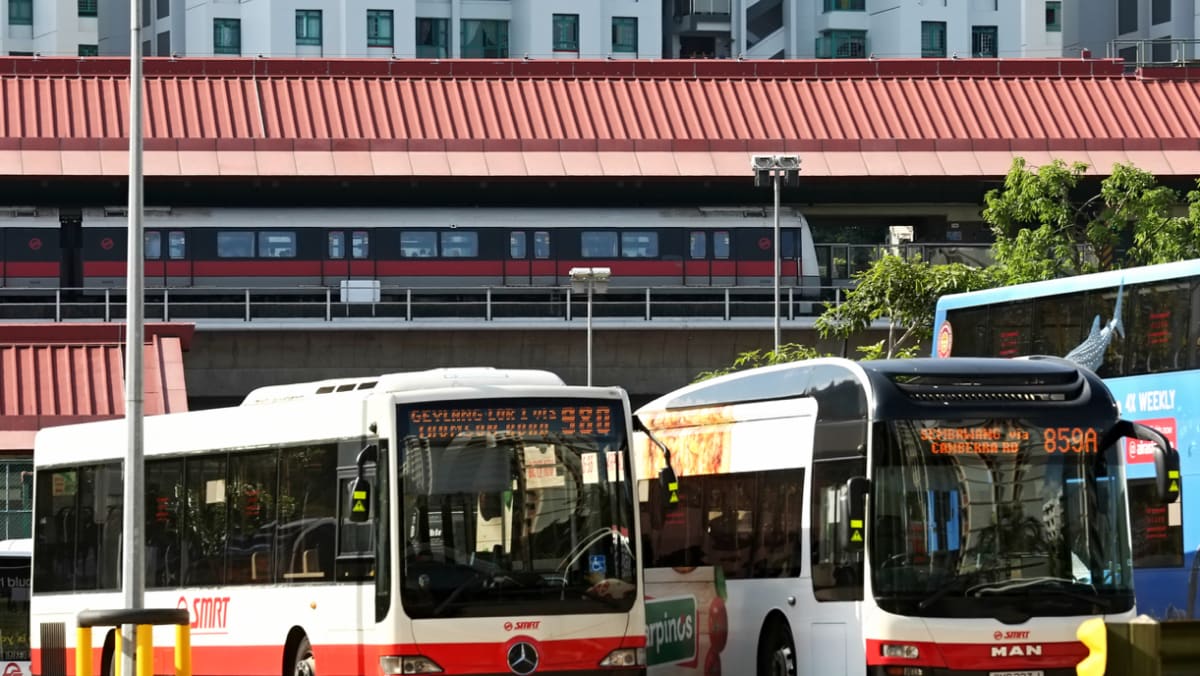
SINGAPORE — Public transport fare increases this year will more than double last year’s hike with fares going up 10 to 11 cents per journey and this trend of sharper increases is likely to continue with the Public Transport Council again deferring part of the fare adjustment quantum to future fare review exercises.
This was the first fare review exercise under the new fare adjustment formula announced in April this year, which the PTC said then was aimed at keeping fares affordable and less volatile.
From Dec 23, adults will see an increase of 10 cents for journeys less than 4.2km and an increase of 11 cents for journeys over 4.2km.
Fares for concession card holders such as students, senior citizens and persons with disabilities will increase by four to five cents per journey.
For example, the adult fare for a train ride from Bishan to City Hall station, which is a journey of 8.1km, is now S$1.45. The new adult card fare from Dec 23 onwards will be S$1.56.
This year’s fare formula output allowed for a maximum fare increase of 12 per cent, mainly driven by sustained increase in energy prices last year, as well as core inflation and strong wage growth.
As a 10.6 per cent increase was deferred from last year’s fare review exercise, the total maximum allowable fare adjustment this year was 22.6 per cent.
However, PTC said that it only granted an increase of 7 per cent “to keep public transport fares affordable in this higher cost environment” and will roll over 15.6 per cent to future fare review exercises.
The Government will provide S$300 million in additional subsidy to cover the cost of deferring the allowable fare adjustments to future review exercises, up from the S$200 million it provided last year.
This subsidy is in addition to the S$2 billion in public transport subsidies given annually by the Government.
The fare adjustment will translate to an increase in fare revenue of about S$137.4 million a year for public transport operators.
The PTC said that the rollover does mean that the deferred quantum will take time to “gradually reduce”, indicating that fare prices are likely to continue increasing in future fare review exercises.
However, if economic circumstances improve and wages continue to grow and the elements of energy prices and core inflation are moderated and come down, the PTC hopes to reduce the deferred amount in the future.
The PTC said the rollover was necessary because if it had allowed the full adjustment, which was requested by public transport operators SBS Transit and SMRT Trains, fares would have been increased by 30 cents per journey for all commuters.
In explaining how it decided on the maximum quantum of 7 per cent, PTC said that it looked at ensuring that the monthly public transport expenditure as a percentage of household income remains similar for “the average public transport commuter” as well as for lower-income groups.
The projected 2.4 per cent of monthly household income spent by second decile income group households representing lower-income commuters is also expected to remain the same.
Ms Janet Ang, chairperson of the PTC, said: “The council seeks to strike an equitable, carefully calibrated and delicate balance between keeping fares affordable while still representing the higher costs of running public transport operations.”
When asked what the maximum allowable increase would have been using the old formula, Ms Ang would not give a figure and would only say that the projected increase would be “out of the chart”.
She added that this validated the updated fare formula’s intention of being “more reflective of the current situation” and its success in ensuring that the “volatility of increases and impact to commuters” is also managed.
The new fare adjustment formula comprises core consumer price index, wage index, energy index and the updated fixed indices of 0.1 per cent productivity contribution and 1.1 per cent capacity adjustment factor.
HELP FOR CONCESSIONARY GROUPS
The PTC will also provide greater support for heavy users of public transport who belong to concessionary groups such as students, seniors and full time national servicemen by reducing the prices of hybrid monthly concession passes by up to 10 per cent.
The Government will also match the PTC’s decision to reduce the price of hybrid monthly concession passes, by reducing the price of hybrid monthly concession passes for persons with disabilities from S$64 to S$58.
A new hybrid monthly concession pass for Workfare Transport Concession Scheme cardholders to support lower-wage workers who travel extensively will be introduced.
The new pass will be priced at S$96 per month, S$32 less than an adult monthly travel pass.
These changes to the monthly concession passes are expected to benefit around 60,000 new and existing monthly pass holders.
SBS Transit and SMRT Trains will also make a mandatory contribution of 15 per cent and 30 per cent respectively of their expected increase in fair revenue to the Public Transport Fund as recommended by the PTC.
This year’s recommendation will result in a S$3.14 million contribution for SBS Transit and S$12.71 million for SMRT Trains.
The Government draws on the fund to further provide assistance to lower-income resident households in the form of public transport vouchers.
The Ministry of Transport in a statement on Monday said that the Government will provide public transport vouchers worth S$50 each to lower-income households.
These vouchers will be made available to resident households with monthly household income per person of not more than S$1,600 and can be used to top up fare cards or buy monthly passes.